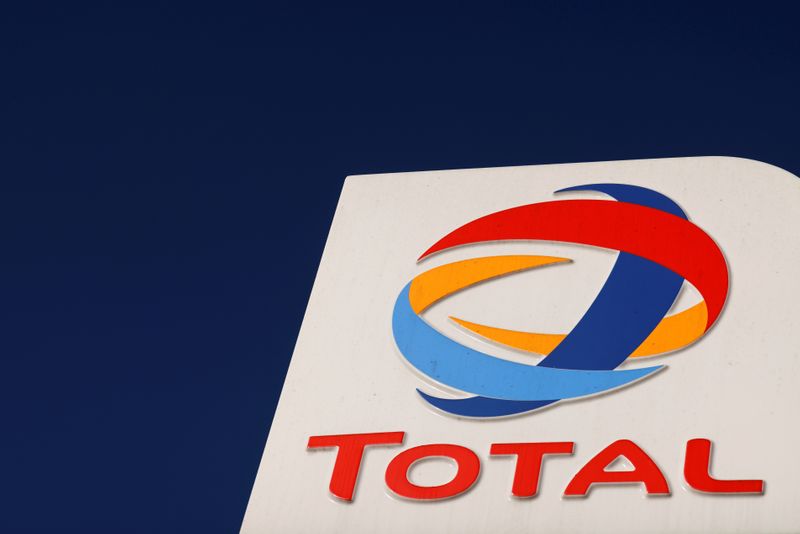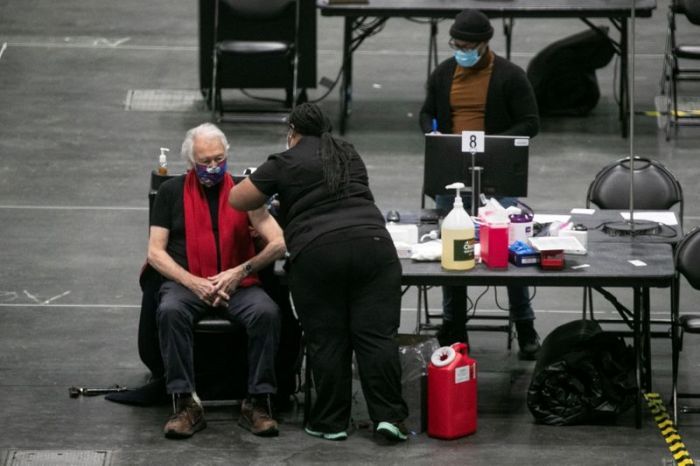LONDON (Reuters) – France’s Total SE on Friday became the first major global energy company to quit the main U.S. oil and gas lobby due to disagreements over its climate policies and support for easing drilling regulations.
Total said it would not renew its 2021 membership with the American Petroleum Institute (API) following a review of the lobby’s climate positions, describing them as being only “partially aligned” with its own.
The high-profile departure from the most powerful energy lobby comes ahead of sweeping changes in policy direction in the United States, with incoming President Joe Biden promising to tackle climate change and bring the country to net-zero emissions by 2050.
“As part of our climate ambition made public in May 2020, we are committed to ensuring, in a transparent manner, that the industry associations of which we are a member adopt positions and messages that are aligned with those of the Group in the fight against climate change”, Total Chief Executive Patrick Pouyanné said.
The withdrawal highlights a widening rift between Europe’s top energy companies, which over the past year accelerated plans to cut emissions and build large renewable energy businesses and their U.S. rivals Exxon Mobil Corp and Chevron Corp that have largely resisted growing investor pressure to diversify.
Chevron has no plans to leave the API, company spokesman Sean Comey said. Exxon was not immediately available for comment.
The announcement puts pressure on Total’s European rivals BP and Royal Dutch Shell to follow suit after resisting the move in recent years.
BP, Shell and Norway’s Equinor on Friday said they are reviewing memberships in trade organizations and how they align on climate-related issues. Shell spokesman Curtis Moore said “API is moving closer to Shell’s own stated views” on climate change.
European oil companies have in the past pointed to the API’s role in formulating industry safety and operating standards as their rationale for remaining with the group.
However, in its reasons for leaving the group, Total cited the API’s support for last year’s rollback of U.S. regulation on emissions of methane, its differing views on pricing carbon, as well its lack of support for subsidies for electric vehicles.
The API thanked Total for its membership, but noted that it does not support subsidies for energy, saying it distorts markets.
“We believe that the world’s energy and environmental challenges are large enough that many different approaches are necessary to solve them, and we benefit from a diversity of views,” the API said.
The group has defended its record on tackling carbon emissions, noting that the industry’s technological advances have helped it cut carbon dioxide and methane emissions rates in large oil-producing regions.
Total last year announced plans to cut its carbon emissions, with the aim of reaching net zero emissions from its operations and its energy products sold to customers in Europe by 2050 or sooner.
Total’s operations in the United States include a number of offshore oil and gas fields in the Gulf of Mexico, a major refining and petrochemical plant in Port Arthur, Texas, as well as renewable energy businesses. The company produced about 343,000 barrels of oil equivalent per day in the third quarter in the Americas.
SIGNIFICANT MOVE
Growing investor pressure has spurred Europe’s top energy companies to outline plans to curb emissions and boost renewable energy output.
“There is simply no justification for any association with lobby groups who roll back emissions regulations and undermine urgent climate action,” said Jeanett Bergan, head of responsible investment at KLP, Norway’s largest pension fund, which manages $80 billion in assets.
Total, BP and Shell have already pulled out of the American Fuel & Petrochemical Manufacturers (AFPM), a U.S. oil refining group, also due to differences over climate policies.
The withdrawal from API was more significant, said Andrew Logan, director for oil and gas programmes and clean energy investor group CERES, said the announcement was significant and would put pressure on other European oil majors.
“Given the size and influence of API, this is a much more significant move than previous decisions to pull out of more niche trade groups like AFPM. I think that we will see other companies follow suit,” Logan said.
(Reporting by Ron Bousso, Matthew Green and Shadia Nasralla in London, Nerijus Adomaitis in Oslo, Valerie Volcovici in Washington and Jennifer Hiller in Houston; editing by Jan Harvey, Jason Neely, Jane Merriman, Marguerita Choy and Louise Heavens)

























